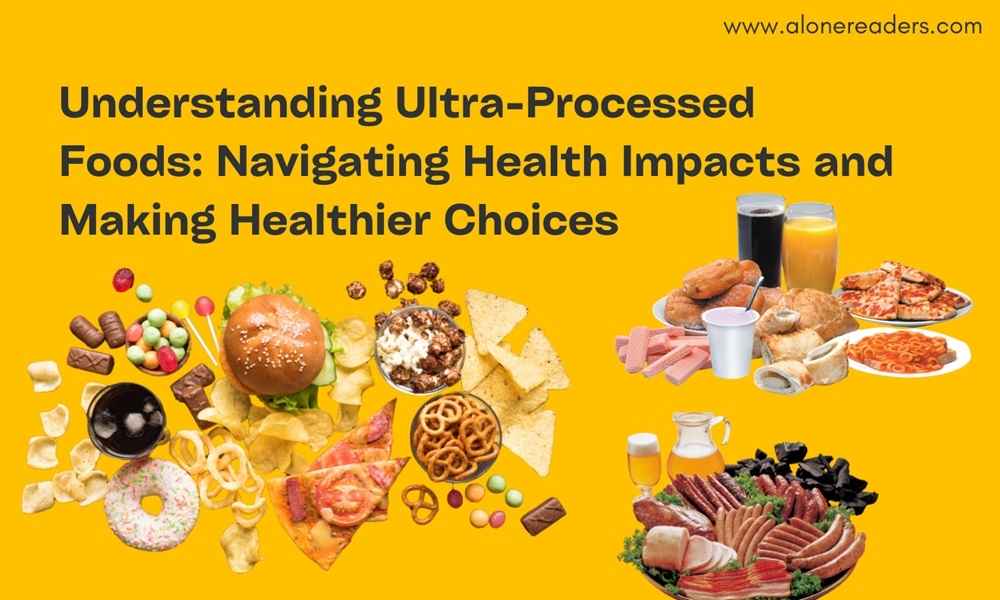
In the UK, the average person consumes more than half of their daily energy (calories) needs from ultra-processed foods. That may not come as a surprise because they are easy, appealing, and widely advertised to us. However, studies have shown that ultra-processed foods might have an effect on our health.
Processed and ultra-processed foods are certainly topics that you've heard a lot about. But what are they? How do they impact your health? Are processed foods generally unhealthy?
Foods that are ultra-processed often contain five components or more. They frequently contain a lot of chemicals and ingredients that aren't often used in home cooking, such as preservatives, emulsifiers, sweeteners, and artificial colors and flavors. Additionally, they make ultra-processed foods shelf-stable, which means they last longer in your cupboard.
The NOVA food classification system, which was created by scientists at the University of So Paulo in Brazil, is where the term "ultra-processed foods" originates. The NOVA classification divides processed food and drinks into four different categories based on how much processing they received during production:
Unprocessed or Minimally Processed
Unprocessed food is produced from plants or animals that have been harvested but have not undergone any physical or nutritional changes.
Foods that have minimal processing do not include any additional ingredients but have undergone processes including drying, crushing, grinding, boiling, freezing, and pasteurization. The main objective is to increase the food's shelf life, which can make it simpler to store and consume.
Common Examples: Fruit, vegetables, eggs, meat, grains, milk, nuts, herbs, and spices
Processed Culinary Ingredients
These are substances that have been taken straight from group 1 foods or the natural world. They are produced by industrial processes including mining, centrifuging, and extracting, and are designed to be combined with other food.
Common Examples: Sugar, salt, butter, lard, oils, vinegar, and vegetable oils crushed from seeds or fruits (like olives).
Processed Foods
These foods are produced by adding ingredients from group 2 (such as salt or sugar) to foods from group 1 using processes such as canning, bottling, and non-alcoholic fermentation (such as cheeses). The goal is to extend the shelf life and improve the taste of group 1 foods.
Common Examples: Canned or bottled vegetables, canned fish, salted, dried, or cured meats and fish, fruits in syrup, freshly made unpackaged bread, and cheeses.
Ultra-Processed
These are created in laboratories using ingredients that have been isolated from food or food particles. Some nutrients, such as carbohydrates, lipids, proteins, and fiber, are created by separating whole foods into their component parts. Then, using industrial procedures like hydrogenation and extrusion, they may be treated more than once. And lastly, food is frequently given an extra taste boost by the use of chemicals like colors and emulsifiers.
Common Examples: A few alcoholic drinks, such as whiskey, gin, and rum, as well as ice cream, ham, sausages, crisps, mass-produced bread, breakfast cereals, cookies, and carbonated beverages.
Effects on Your Physical Health
It is not surprising that consuming too many ultra-processed foods can be harmful to our health because they are high in calories, sugar, salt, and harmful fats.
Foods that are ultra-processed have been connected to:
But there may be more to the issue with highly processed meals than just their high calorie and low nutritional content.
Ultra-processed food may also cause inflammation and alter your gut flora, which refers to the trillions of bacteria that inhabit our intestines.
Effects on Eating Behaviors
Foods with a high level of processing may change our eating habits. We may overeat ultra-processed food due to a variety of its properties. They are rich in sugar, salt, and fat, and have a variety of textures that might set off our brain's reward system and make us want to eat more. It, therefore, comes as no surprise that they have been connected to eating disorders and addictive-like behaviors.
The consistency of ultra-processed meals is another factor. Since many of them are soft and simple to chew, we often consume more calories by eating them quickly. The possibility of being overweight or obese has been related to fast eating.
Impact on Mental Health
There isn't much information about ultra-processed food and mental health, but some research suggests that eating a lot of these foods may raise your chance of developing depression by up to 20%.
The fact that a diet heavy in ultra-processed foods may be deficient in the healthful foods and nutrients that support mental wellness may be one reason for this connection.
Identifying ultra-processed foods is not often easy. Here is a list of indicators indicating a product has been ultra-processed:
It might be difficult to avoid ultra-processed food since they are cheap, useful, tasty, and occasionally difficult to detect.
Here are some suggestions that will help you in reducing your intake of ultra-processed foods while keeping an eye on your budget and schedule:
Final Word
Almost everything we consume has undergone some level of processing, making it a significant component of our food chain. Our diet is mostly composed of ultra-processed foods, which have been linked to several health issues like obesity, heart disease, and diabetes. You may reduce the amount of ultra-processed foods in your diet by taking certain actions.